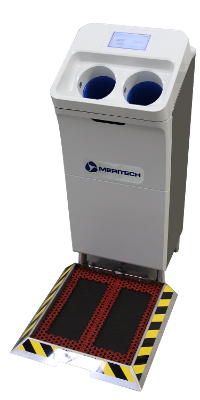The Importance of Food Safety Management Systems
Food safety is an integral part of our daily lives, as we rely on the food we consume to nourish and sustain us. However, ensuring the safety and quality of the food supply chain is a complex task that requires strict measures and effective food safety management systems. In this blog post, we will delve into the importance of food safety management systems and their role in protecting our well-being.
Food Safety Management Systems Safeguard Consumer Health
Foodborne illnesses pose a significant threat to public health, causing illnesses, hospitalizations, and even fatalities. The World Health Organization (WHO) estimates that approximately 600 million people worldwide suffer from foodborne diseases each year. By implementing food safety management systems, such as Hazard Analysis and Critical Control Points (HACCP) and Good Manufacturing Practices (GMPs), we can reduce the risks associated with contaminated food and minimize the occurrence of foodborne illnesses. These systems help identify potential hazards, establish preventive controls, and ensure that food is handled, processed, and stored in a safe manner.
 Furthermore, food safety management systems go beyond preventing foodborne illnesses and contribute significantly to the overall health and well-being of consumers. These systems also encompass things like allergen management, which is particularly crucial for individuals with any food allergies or sensitivities. By effectively controlling the risks of cross-contamination and providing accurate labeling, these systems empower individuals to make informed choices and avoid any potential allergic reactions.
Furthermore, food safety management systems go beyond preventing foodborne illnesses and contribute significantly to the overall health and well-being of consumers. These systems also encompass things like allergen management, which is particularly crucial for individuals with any food allergies or sensitivities. By effectively controlling the risks of cross-contamination and providing accurate labeling, these systems empower individuals to make informed choices and avoid any potential allergic reactions.
 CleanTech® Automated Handwashing Stations play a vital role in safeguarding consumer health by ensuring proper hand hygiene. Handwashing is a fundamental practice in preventing the transmission of pathogens, and these automated stations make it convenient and efficient for employees to maintain clean hands. With features such as touchless operation, adjustable water temperature, and built-in compliance tracking, these stations promote effective handwashing practices across the food industry. By eliminating the need for manual operation, CleanTech® Automated Handwashing Stations effectively eliminate the risk of cross-contamination when hand washing. The implementation of CleanTech Automated Handwashing Stations demonstrates a commitment to consumer safety and health, highlighting the importance of proper hand hygiene in maintaining a safe and secure workplace environment.
CleanTech® Automated Handwashing Stations play a vital role in safeguarding consumer health by ensuring proper hand hygiene. Handwashing is a fundamental practice in preventing the transmission of pathogens, and these automated stations make it convenient and efficient for employees to maintain clean hands. With features such as touchless operation, adjustable water temperature, and built-in compliance tracking, these stations promote effective handwashing practices across the food industry. By eliminating the need for manual operation, CleanTech® Automated Handwashing Stations effectively eliminate the risk of cross-contamination when hand washing. The implementation of CleanTech Automated Handwashing Stations demonstrates a commitment to consumer safety and health, highlighting the importance of proper hand hygiene in maintaining a safe and secure workplace environment.
Take our product selection quiz to see which system would be right for your facility
Food Safety Management Systems Ensure Consistent Quality
Food safety management systems play a crucial role in ensuring the quality and consistency of the food we consume. They help maintain the integrity of ingredients, the cleanliness of processing facilities, and adherence to proper handling and storage practices. By implementing rigorous quality control measures, companies can minimize the likelihood of product recalls, customer complaints, and damage to their reputation. This, in turn, boosts consumer confidence and guarantees that the food we purchase meets the highest standards of quality and safety.
 Food safety management systems not only serve as a vital defense against safety hazards, but they also enhance the overall quality and uniformity of food products.These systems incorporate robust measures for quality control, such as sensory evaluation, laboratory testing, and product specifications, to guarantee that the food meets defined standards. By implementing stringent quality checks at every stage of the production process, companies can promptly identify and rectify any deviations from the desired quality parameters, ensuring that consumers consistently receive products of the utmost quality. This dedication to excellence extends beyond safety measures and encompasses preserving the taste, texture, and appearance of the food, elevating the overall consumer experience.
Food safety management systems not only serve as a vital defense against safety hazards, but they also enhance the overall quality and uniformity of food products.These systems incorporate robust measures for quality control, such as sensory evaluation, laboratory testing, and product specifications, to guarantee that the food meets defined standards. By implementing stringent quality checks at every stage of the production process, companies can promptly identify and rectify any deviations from the desired quality parameters, ensuring that consumers consistently receive products of the utmost quality. This dedication to excellence extends beyond safety measures and encompasses preserving the taste, texture, and appearance of the food, elevating the overall consumer experience.
Learn about implementing effective food safety management systems
Food Safety Management Systems Ensure Compliance with Regulations
Food safety management systems are designed to align with local, national, and international regulatory standards and guidelines. Regulatory authorities, such as the U.S. Food and Drug Administration (FDA) and the European Food Safety Authority (EFSA), establish guidelines and regulations to ensure the safety of the food supply chain. By implementing robust food safety management systems, food businesses can demonstrate their commitment to compliance and ensure that they meet the necessary legal requirements. This not only protects public health but also helps companies avoid legal consequences.
Moreover, adhering to regulatory requirements not only provides a competitive edge but also instills confidence in consumers that the company operates within the legal framework and upholds industry-leading practices. Furthermore, meeting regulatory standards paves the way for global market access, guaranteeing that the company's products meet the necessary import and export criteria, thus enabling lucrative international trade prospects and avenues for expansion.
Learn about navigating food safety inspections
Food Safety Management Systems Safeguard the Integrity of the Supply Chain
The modern food supply chain is complex, involving various stakeholders, including farmers, manufacturers, distributors, and retailers. Food safety management systems help establish transparency, traceability, and accountability throughout the supply chain. They enable businesses to monitor and track ingredients, assess potential risks, and respond promptly to any safety concerns. By implementing these systems, companies can ensure that their suppliers adhere to the necessary safety standards, reducing the chances of contamination, adulteration, or fraudulent practices.
![]() Through the implementation of these systems, companies can establish meticulous supplier verification processes, guaranteeing that every ingredient and raw material adheres to the essential safety standards.This helps prevent the entry of contaminated or adulterated ingredients into the production process. Additionally, by implementing traceability systems, businesses can quickly identify the source of any safety issues and take appropriate actions to contain and rectify them. These measures not only protect consumers but also maintain the reputation and credibility of the entire supply chain, fostering trust among stakeholders and consumers alike.
Through the implementation of these systems, companies can establish meticulous supplier verification processes, guaranteeing that every ingredient and raw material adheres to the essential safety standards.This helps prevent the entry of contaminated or adulterated ingredients into the production process. Additionally, by implementing traceability systems, businesses can quickly identify the source of any safety issues and take appropriate actions to contain and rectify them. These measures not only protect consumers but also maintain the reputation and credibility of the entire supply chain, fostering trust among stakeholders and consumers alike.
Learn about the types of food safety audits
Food Safety Management Systems Encourage Continuous Improvement and Risk Reduction
Food safety management systems are not static but rather dynamic and adaptable. They encourage businesses to continually assess and improve their processes, identify potential risks, and implement preventive measures. By embracing a culture of continuous improvement, companies can stay ahead of emerging threats, technological advancements, and evolving consumer expectations. These systems also facilitate risk reduction strategies, allowing businesses to proactively address potential hazards and prevent foodborne outbreaks. In this way, food safety management systems contribute to long-term sustainability and resilience in the food industry.
Food safety management systems are essential for ensuring the safety, quality, and integrity of the food we consume. By implementing these systems, we protect consumer health, maintain consistent quality, comply with regulatory standards, safeguard the integrity of the supply chain, and foster continuous improvement. As consumers, it is crucial to support and demand the implementation of robust food safety management systems from the companies and regulatory bodies responsible for our food supply chain. Together, we can create a safer and more secure future, where foodborne illnesses become a thing of the past, and the well-being of individuals remains a top priority.
Learn 5 strategies to improve hand hygiene compliance in our upcoming webinar!






